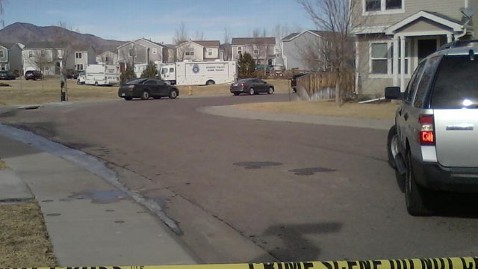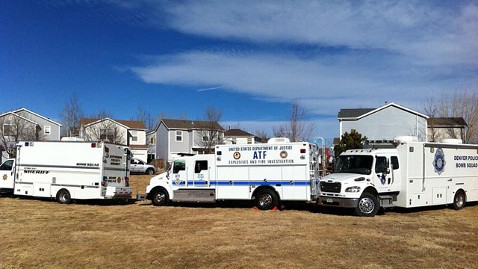SEOUL (Reuters) - North Korea said on Thursday it would carry out further rocket launches and a nuclear test that would target the United States, dramatically stepping up its threats against a country it called its "sworn enemy".
The announcement by the country's top military body came a day after the U.N. Security Council agreed to a U.S.-backed resolution to censure and sanction North Korea for a rocket launch in December that breached U.N. rules.
North Korea is not believed to have the technology to deliver a nuclear warhead capable of hitting the continental United States, although its December launch showed it had the capacity to deliver a rocket that could travel 10,000 km (6,200 miles), potentially putting San Francisco in range, according to an intelligence assessment by South Korea.
"We are not disguising the fact that the various satellites and long-range rockets that we will fire and the high-level nuclear test we will carry out are targeted at the United States," North Korea's National Defence Commission said, according to state news agency KCNA.
North Korea is believed by South Korea and other observers to be "technically ready" for a third nuclear test, and the decision to go ahead rests with leader Kim Jong-un, who pressed ahead with the December rocket launch in defiance of the U.N. sanctions.
China, the one major diplomatic ally of the isolated and impoverished North, agreed to the U.S.-backed resolution and it also supported resolutions in 2006 and 2009 after Pyongyang's two earlier nuclear tests.
Thursday's statement by North Korea represents a huge challenge to Beijing as it undergoes a leadership transition, with Xi Jinping due to take office in March.
China's Foreign Ministry called for calm and restraint and a return to six-party talks, but effectively singled out North Korea, urging the "relevant party" not to take any steps that would raise tensions.
"We hope the relevant party can remain calm and act and speak in a cautious and prudent way and not take any steps which may further worsen the situation," ministry spokesman Hong Lei told reporters at a regular press briefing.
North Korea has rejected proposals to restart the talks aimed at reining in its nuclear capacity. The United States, China, Russia, Japan and the two Koreas are the six parties involved.
"After all these years and numerous rounds of six-party talks we can see that China's influence over North Korea is actually very limited. All China can do is try to persuade them not to carry out their threats," said Cai Jian, an expert on Korea at Fudan University in Shanghai.
Analysts said the North could test as early as February as South Korea prepares to install a new, untested president or that it could choose to stage a nuclear explosion to coincide with former ruler Kim Jong-il's Feb 16 birthday.
"North Korea will have felt betrayed by China for agreeing to the latest U.N. resolution and they might be targeting (China) as well (with this statement)," said Lee Seung-yeol, senior research fellow at Ewha Institute of Unification Studies in Seoul.
U.S. URGES NO TEST
Washington urged North Korea not to proceed with a third test just as the North's statement was published on Thursday.
"Whether North Korea tests or not is up to North Korea," Glyn Davies, the top U.S. envoy for North Korean diplomacy, said in the South Korean capital of Seoul.
"We hope they don't do it. We call on them not to do it," Davies said after a meeting with South Korean officials. "This is not a moment to increase tensions on the Korean peninsula."
The North was banned from developing missile and nuclear technology under sanctions dating from its 2006 and 2009 nuclear tests.
A South Korean military official said the concern now is that Pyongyang could undertake a third nuclear test using highly enriched uranium for the first time, opening a second path to a bomb.
North Korea's 2006 nuclear test using plutonium produced a puny yield equivalent to one kiloton of TNT - compared with 13-18 kilotons for the Hiroshima bomb - and U.S. intelligence estimates put the 2009 test's yield at roughly two kilotons
North Korea is estimated to have enough fissile material for about a dozen plutonium warheads, although estimates vary, and intelligence reports suggest that it has been enriching uranium to supplement that stock and give it a second path to the bomb.
According to estimates from the Institute for Science and International Security from late 2012, North Korea could have enough weapons grade uranium for 21-32 nuclear weapons by 2016 if it used one centrifuge at its Yongbyon nuclear plant to enrich uranium to weapons grade.
North Korea has not yet mastered the technology needed to make a nuclear warhead small enough for an intercontinental missile, most observers say, and needs to develop the capacity to shield any warhead from re-entry into the earth's atmosphere.
North Korea gave no time-frame for the coming test and often employs harsh rhetoric in response to U.N. and U.S. actions that it sees as hostile.
The bellicose statement on Thursday appeared to dent any remaining hopes that Kim Jong-un, believed to be 30 years old, would pursue a different path from his father, Kim Jong-il, who oversaw the country's military and nuclear programs.
The older Kim died in December 2011.
"The UNSC (Security Council) resolution masterminded by the U.S. has brought its hostile policy towards the Democratic Peoples Republic of Korea (North Korea) to its most dangerous stage," the commission was quoted as saying.
(Additional reporting by Christine Kim in SEOUL, Ben Blanchard and Sui-Lee Wee in Beijing; Writing by David Chance; Editing by Raju Gopalakrishnan and Ron Popeski)











